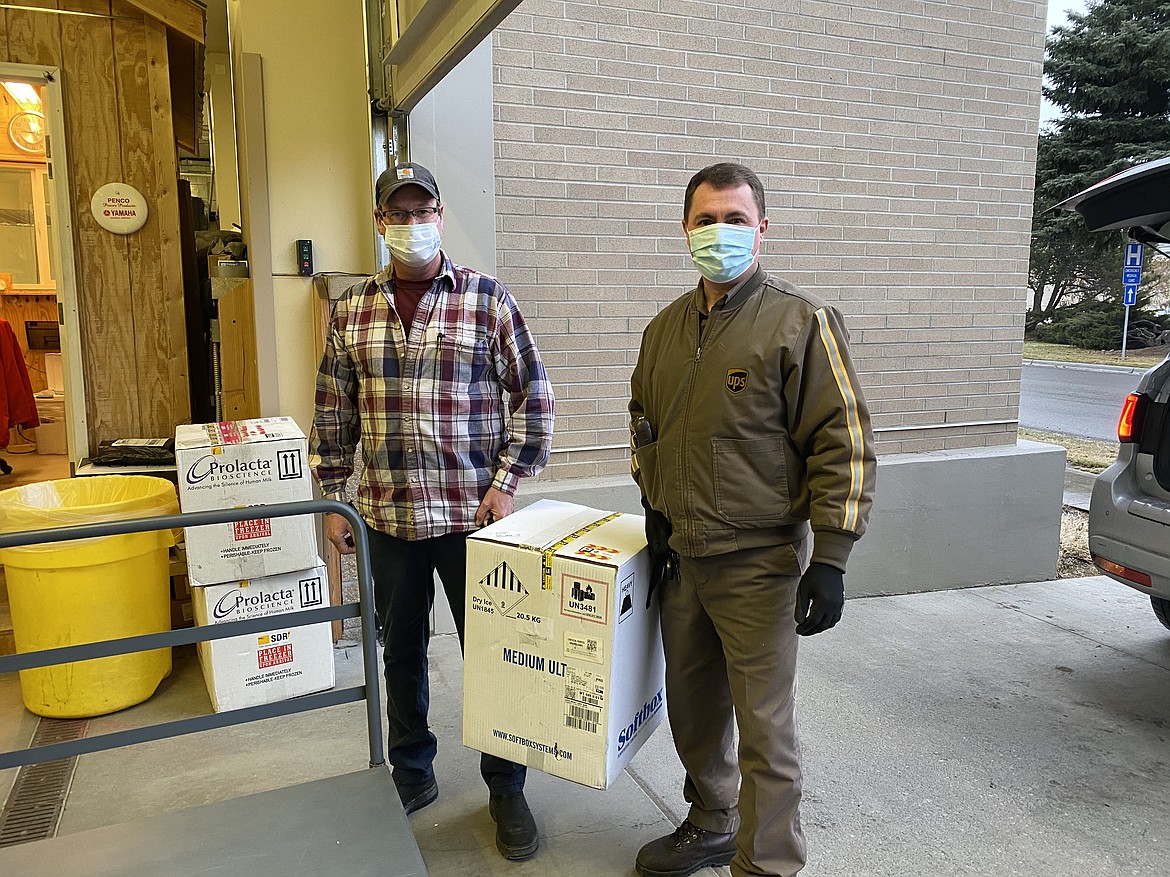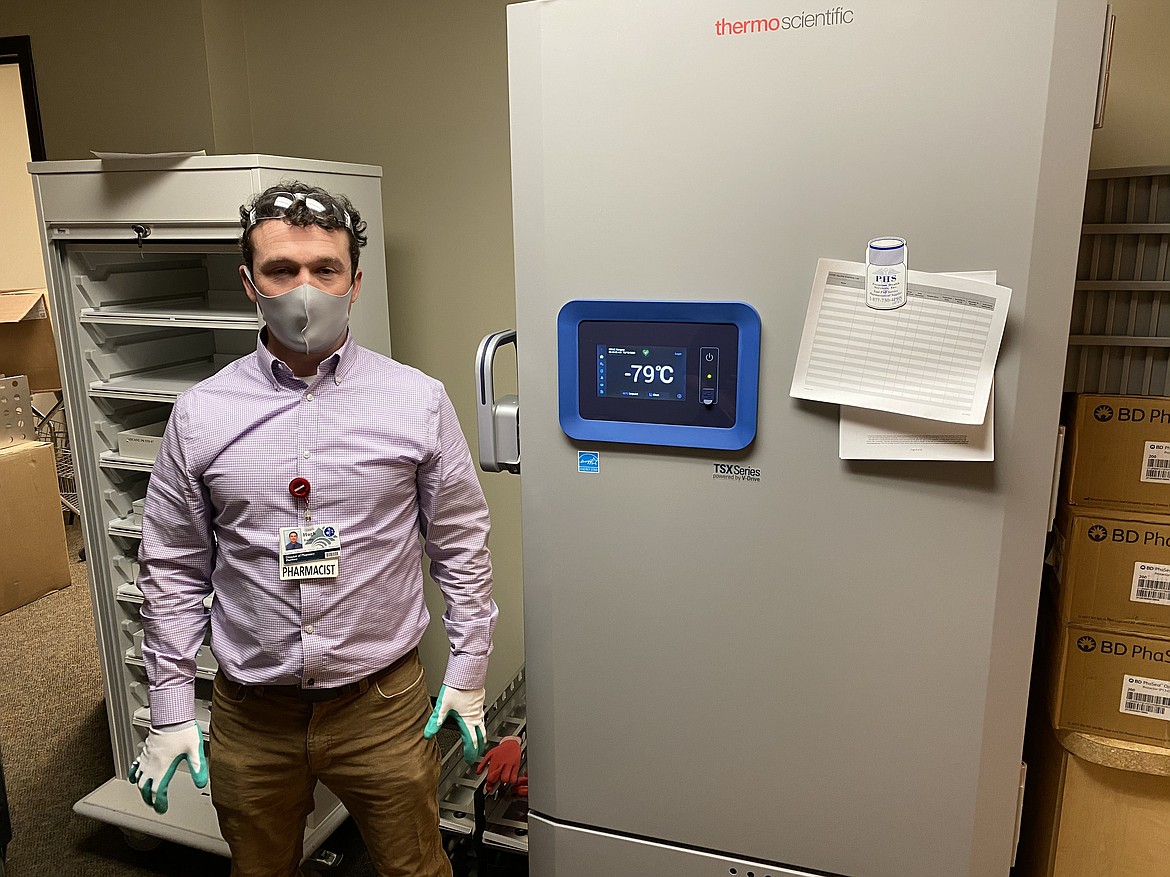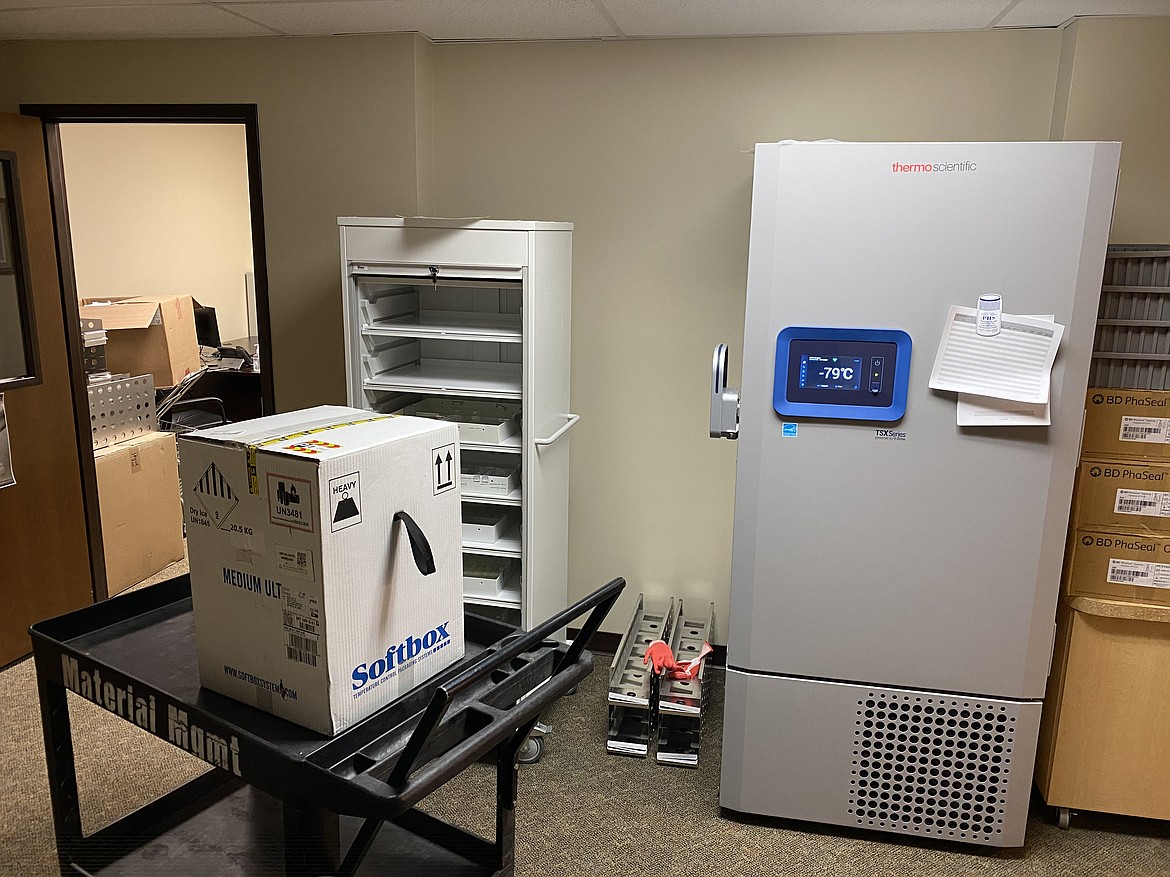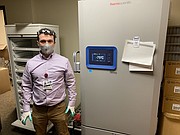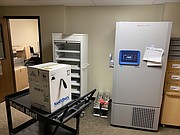Covid vaccines arrive at Kalispell Regional
More than 10 months after the coronavirus pandemic reached the Flathead Valley, frontline workers at Kalispell Regional Healthcare are expected to begin receiving COVID-19 vaccinations on Thursday.
A box containing 975 doses of the vaccine developed by Pfizer and BioNTech arrived at Kalispell Regional Medical Center at about 9 a.m. Tuesday, and is being stored in a special freezer that preserves the vaccine at minus 112 degrees Fahrenheit, the hospital said in a news release.
Kalispell Regional, which is rebranding as Logan Health next month, said employees who are most frequently at high risk of exposure to the virus will be given top priority in its distribution of the vaccine. That group includes respiratory therapists, workers who conduct COVID-19 testing and those working in the COVID-19 unit and emergency department.
Next on the distribution list are those with “incidental risk,” such as employees working in patient registration, outpatient clinics and other “patient-facing” positions. Employees who don't directly interact with patients are expected to receive the vaccine later.
Hospital spokeswoman Mellody Sharpton said employees in the high-risk category will receive the first dose of the two-dose vaccine on Thursday and Friday, and incidental-risk employees are expected to receive shots sometime next week. Sharpton said Kalispell Regional anticipates a second shipment of the vaccine next week, though she did not specify how many vials might arrive.
Under federal guidelines, health-care workers and residents of long-term care facilities are expected to receive the vaccine before other segments of the community. COVID-19 vaccines – including the one developed by Pfizer and another from Moderna – likely won't be widely available for months.
Kalispell Regional has emphasized the COVID-19 vaccine is voluntary for its employees, though it's not clear how many health-care workers might opt out.
“KRH will provide a safe environment in which to administer the vaccine, and resources for employees to learn more about the vaccine, but whether or not to vaccinate is an employee’s choice," the hospital said in its news release.
FOR NURSES and other frontline health-care workers fatigued by the pandemic, the vaccine is a light at the end of the tunnel.
Speaking on behalf of the nurses union SEIU Healthcare 1199NW, Christina Bradbury, a registered nurse in the cardiovascular services unit at Kalispell Regional, said she and her coworkers were eager for the vaccine to arrive, though some still had questions about it. Only a vaccine will stop the pandemic, she said.
"I am certainly glad that it's become available, and become available so soon. But because it is so new, I do have questions about specifically how it works," Bradbury said in an interview Monday. "It's encouraging, and I'm definitely optimistic about it, but I do know that more information would be beneficial about the vaccine itself."
Bradbury said she plans to get vaccinated, and she believes a vast majority of her coworkers will make the same choice if hospitals and health officials work to educate them and answer any unresolved questions.
"I think it's a good idea to encourage health-care workers to take the vaccine, but I don't think employers should make it mandatory," Bradbury said. "I think the numbers are definitely positive when you give people the choice to take it or not."
Bradbury stressed that the first rounds of vaccinations will not diminish the need for personal protective equipment in hospitals, including gloves, gowns, masks, face shields and N95 respirators.
She said health-care workers who get the vaccine should be allowed to take several days of paid administrative leave to recover from any influenza-like side effects without using their allotted vacation time.
"They're strongly encouraging us to take the vaccine. We want to take it in order to protect ourselves and to protect others," Bradbury said. Health-care workers, she said, should not have to use vacation time "after electing to take these vaccines to make our organization stronger and safer."
Bradbury said the past months have been fatiguing, with some severely ill COVID-19 patients and many health-care workers being forced to take time off due to COVID-19 diagnoses or exposures. And she said it's been disheartening to interact with patients and people in the community who refuse to wear masks or believe the pandemic is a hoax or overblown.
"I wish I could take each one of them on a tour through the hospital and say, 'This is what it really looks like. This is what this actually is,' " Bradbury said. "With the polarization of political parties and how politicized coronavirus has become, there's no way that I could ever explain to anybody, unfortunately, what it really looks like."
Reporter Chad Sokol can be reached at 758-4434 or csokol@dailyinterlake.com Reporter Kianna Gardner can be reached at 758-4407 or kgardner@dailyinterlake.com

